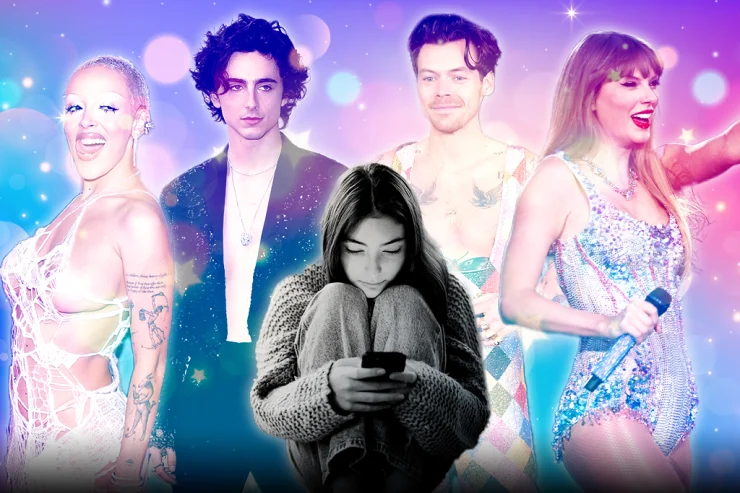I don’t know if it’s because the Earth weighs less due to the amount of oil that has been extracted and burned for electricity production. But the truth is that the planet seems to be spinning faster, and this year is almost over. As always, annual events are being announced, and one of them has caught my attention: the naming of “parasocial” as the word of the year 2025. But what does the word “parasocial” mean, and why does it matter?
The detailed explanation was given by journalist David Mouriquand of Euronews, who said: “The word is used to describe a relationship (or parasocial relationship, ‘PSR’) in which someone feels they know a celebrity on a personal level, even though they have never met them.”
The Cambridge Dictionary defines this year’s word as “implying or referring to a connection that someone feels between themselves and a famous person they do not know, a character in a book, film, television series, etc., or an artificial intelligence.”
The term was coined in 1956 by sociologists Donald Horton and Richard Wohl. Who wanted to describe how television viewers formed “parasocial” relationships with television personalities.
Since then, the phenomenon, linked to fan language, has grown exponentially. As social media fosters parasocial relationships with celebrities, influencers, and online personalities with whom people have no real-world personal connection.
Explaining why they chose ‘parasocial’ as their word of the year. The Cambridge Dictionary states: “As social media intensifies the intimacy fans feel with their beloved celebrities, and with the rise of AI companions that can adopt personalities. Also the word for these one-way relationships, parasocial, is having its moment.”
Colin McIntosh, editor-in-chief of the Cambridge Dictionary, said the word “captures the spirit of 2025” and demonstrates how language changes. “Parasocial stood out in 2025 for several reasons. Public interest in the term increased enormously this year, as seen in our data. The number of searches for the word on the Cambridge Dictionary as well as on Google spiked several times.”
He added: “It’s interesting from a linguistic point of view because it has gone from being an academic term to one used by ordinary people in their social media posts.” And it also captures the spirit of 2025. As the public’s fascination with celebrities and their lifestyles continues to reach new heights.
One example cited by the Cambridge Dictionary is Taylor Swift, who announced her engagement to NFL star Travis Kelce this year. This led many fans to express their heartfelt feelings toward a couple most have never met.
“Global coverage of the way Taylor Swift announced her engagement to Travis Kelce caused searches for ‘parasocial’ to skyrocket. Futhermore as the media dissected fan reactions,” notes the Cambridge Dictionary.
The use of the term has surged this year, particularly due to concerns about the bonds some people have begun to develop with AI chatbots.
Simone Schnall, a professor of experimental social psychology at the University of Cambridge, said the rise of parasocial relationships “has redefined the phenomenon of ‘fandom,’ celebrity, and, with AI, the way ordinary people interact online.” He continued, “We have entered an era in which many people are forming unhealthy and intense parasocial relationships with influencers. This leads to the feeling that they know those who are forging these parasocial bonds, that they can trust them, and even to extreme forms of loyalty. However, it is completely one-sided.”
He went on: “Parasocial trends are taking on a new dimension, as many people treat AI tools like ChatGPT as if they were Friends. Offer positive affirmations, or use them as a substitute for therapy. It is the illusion of a relationship and of groupthink, and we know that young people can be susceptible to this.”
- Fernández: Our Most International Pianist - 20 de February de 2026
- The Psychology of Love in Couples - 16 de February de 2026
- Love, the Fuel of Our Lives - 14 de February de 2026

